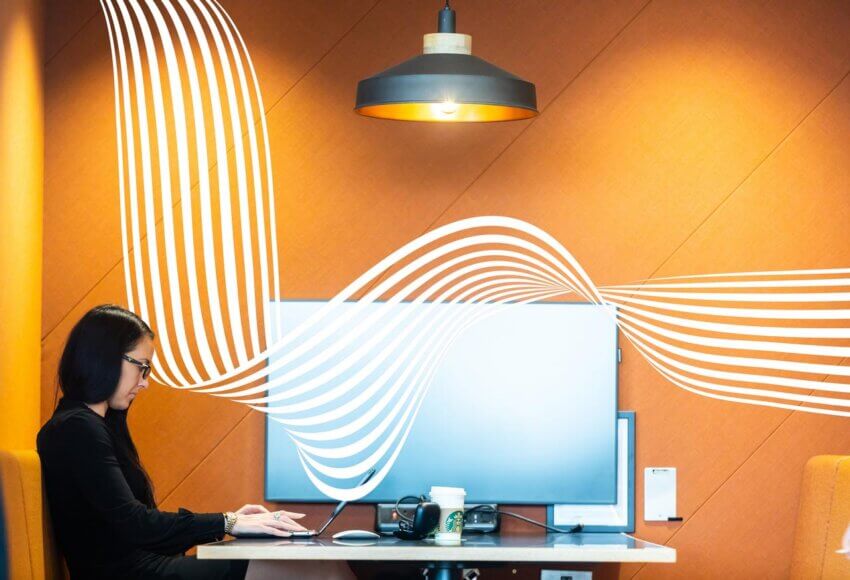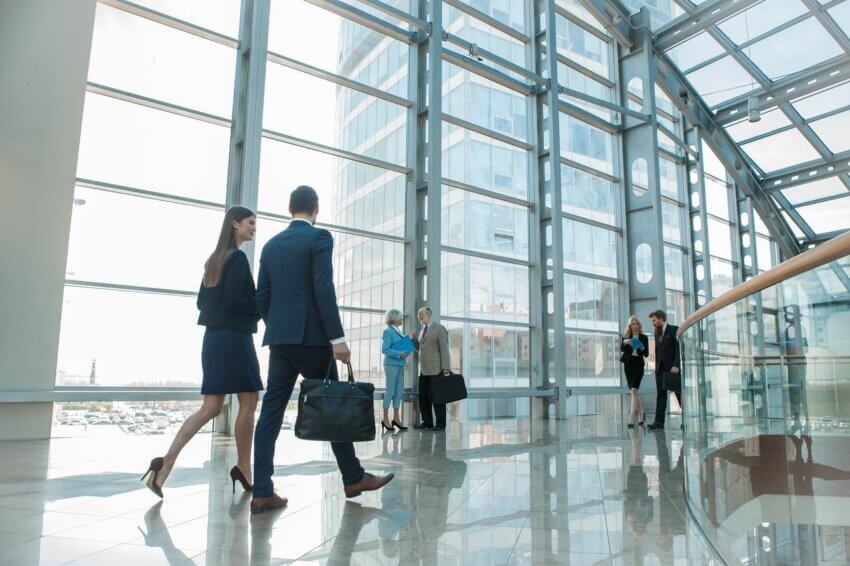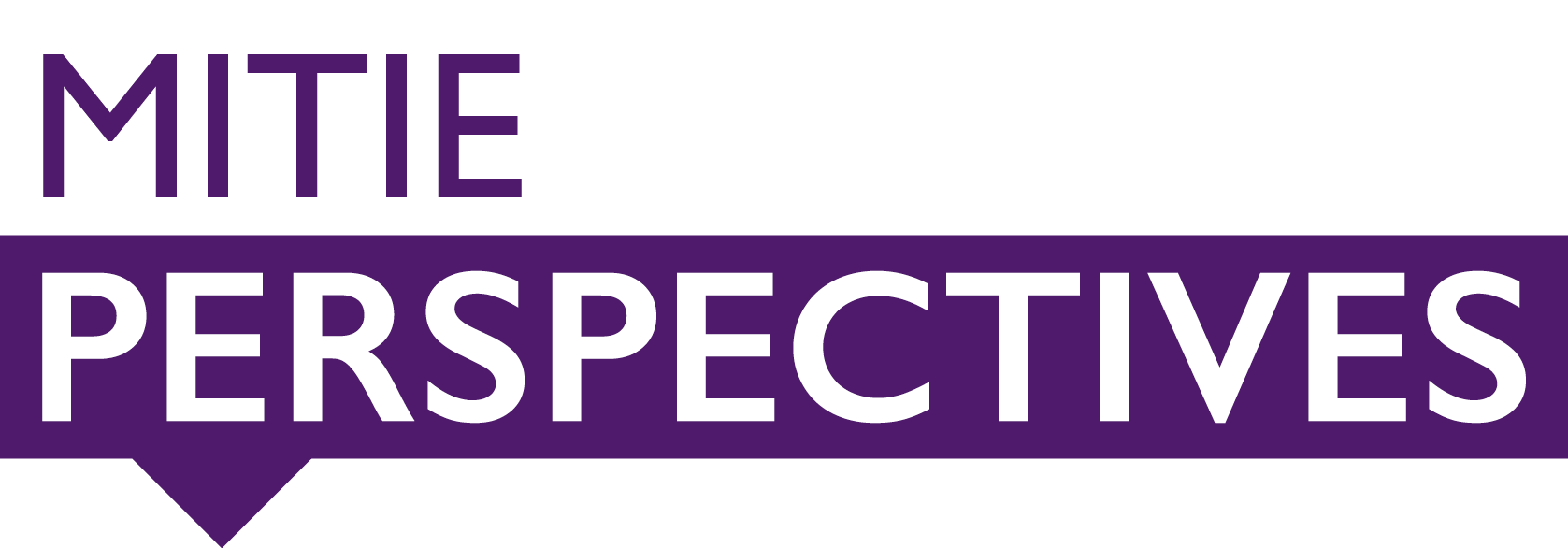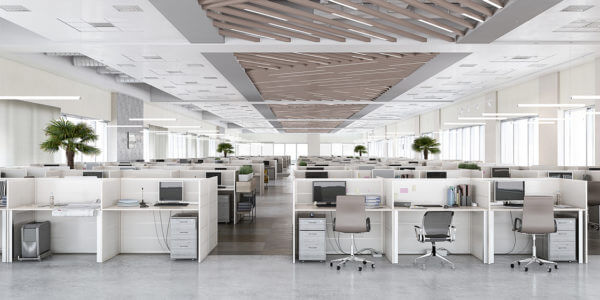Are you ready for the workplace reckoning?

Seismic change is coming to the workplace – yet organisations are in denial and will face dire consequences.
This is the warning of Mitie’s Head of Innovation & Transformation, Leagh Cater, who has navigated the challenging issue of shaping the workplace of the future.
In this Perspectives article, Leagh urges organisations to wake up to coming changes – and start preparing before it’s too late.
Post-Covid, the workplace, as we know it, is undergoing profound transformation. While many organisations are making changes to keep up, few are preparing for the scale and pace of the seismic shift on the horizon.
We need to act decisively and start rethinking the workplace of the future. What we face is not a slow evolution, but a workplace reckoning. And whether organisations survive will depend on choices and investments made today.
Let’s talk about Gen Z
We often talk about the workforce of the future. But that future is closer than we think. By 2030 – less than five years away – Generation Z will make up nearly a third of the global workforce.
“Gen Z, born between 1997 and 2012, is unlike any other generation. They are digital natives. They’ve grown up with smartphones, social media, Wi-Fi and streaming. They don’t remember a world before the internet. They value autonomy, technology, purpose and inclusivity.”
But there’s another side to this story that organisations need to consider. Gen Z also reports significantly higher levels of mental health challenges. A recent study found that as many as 42% of Gen Z have a diagnosed mental health condition (such as anxiety or depression) and they are also more likely to identify as neurodivergent.
So, what are organisations doing to prepare for this shift in workforce identity? In many cases, not enough – or worse, the wrong things.
Neurodiversity and the need for solitude
The data is clear: Gen Z is more likely than any previous generation to identify as neurodivergent. That means they may process information, manage energy levels and engage with both people and their environment differently.
Yet most workplaces are still built around a ‘one size fits all’ model. Open-plan layouts. Constant background noise. Lack of personal space. One of the biggest pain points for today’s users is ‘chicken farms’ of shared desks, where colleagues chatter on Teams calls. All of this can be challenging for individuals who need quiet, control or time to recharge.

I believe we must create a diverse ecosystem of spaces that recognise this – spaces for collaboration, yes, but also areas for solo, focused, quiet work. I emphasise that these aren’t luxuries. They’re essentials. And they will be the difference between organisations that attract and retain talent – and those that don’t.
Free pizza isn’t culture
Culture is another area where intentions and outcomes often don’t align. According to Oxford Economics, 77% of Gen Z say they want to work for companies whose values align with their own — with purpose, sustainability, inclusivity and wellbeing topping the list.
But when it comes to action, too many organisations default to performative perks: themed dress days, free food or games rooms with ping pong tables. These generate a few smiles, but they’re no substitute for real investment in technology, infrastructure and wellbeing.
Gen Z wants workplaces with strong Wi-Fi, reliable power supply, working screens and associated hardware, ergonomic furniture, inclusive policies, mental health support and clear career pathways. They want to feel that their employer is invested in their success – not just their output.
At the heart of this is creating spaces where people feel genuinely seen, heard and valued. Too often we forget that work isn’t just about clients or targets. It’s about people thriving. Human connection. Authenticity. Emotional intelligence. Ultimately, integrated FM providers like Mitie are critical to enabling human connections in the workplace, providing spaces that fuel engagement, loyalty, creativity and wellbeing.
The rise of AI and the need for agile environments
The nature of work is changing too – artificial intelligence, automation and digital transformation are reshaping roles, responsibilities and productivity.
Gen Z will embrace these tools more quickly than any previous generation. They’ll expect seamless digital experiences, intuitive platforms and innovative workplaces.
But too often, we see organisations focus on aesthetics over function. The typical ‘future workplace’ still features sprawling hot-desking zones, screen-free breakout areas or Instagrammable collaboration spaces – little thought is given to whether those spaces really support how people work.
“And here’s the problem: if we continue designing workspaces based on the preferences of current leadership rather than the needs of future talent, we risk falling behind or wasting significant investment.”
Workplace policies that miss the mark
Time and again, studies show that flexibility ranks higher than even salary in Gen Z’s priorities.
And yet, we’re still seeing companies enforce mandatory return-to-office policies, often without considering whether the environment people are returning to is fit for purpose. We need to ask: Are we designing workplaces for today’s workforce or tomorrow’s?

There’s an opportunity to rethink not just where people work, but when. For example, why not consider either optimising space usage or closing buildings on Fridays? This not only aligns with Gen Z’s preference for flexibility, but it’s also an environmentally conscious choice that supports smarter use of space and energy.
It’s not too late – but the clock is ticking
The workplace reckoning isn’t just about the physical environment – it’s about mindset. About shifting from short-term thinking to long-term resilience. About recognising that the decisions we make today will shape not only how we operate, but who chooses to work with us, and in what way, in the years ahead.
None of this is about fear. It’s about opportunity. The organisations that take action will be the ones that attract, engage and retain the best people. They will be the ones who innovate faster, adapt more easily and ultimately thrive in an uncertain future.
The time to act is now. Let’s build a workplace that is future-proof and aligned to company strategy, where Gen Z – and all generations – can do their best work.

Do you agree with Leagh? Share your thoughts by emailing leagh.cater@mitie.com.
Read next

Where tech meets people: How Mitie uses AI to support our experts
As AI plays an ever-growing role in all areas of facilities management, we look at how Mitie plans to use it to support its People function and strategy – providing intelligence services to those…
The Science of Service Podcast: The office is dead… Long live the office!
As we head towards summer 2024, it’s easy to forget just how different work life was during the pandemic. For those fortunate enough not to have been permanently affected by Covid-19, the sequence of…

How to design the perfect workplace
Most of us will spend around a third of our adult lives at work – that’s an average of 35 hours a week, or about 90,000 hours over a lifetime. Our workplaces should be…
 Skip to content
Skip to content
